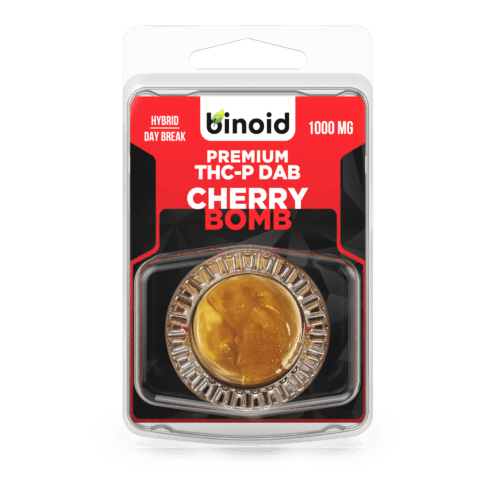The topic of regulating the hemp industry has never been an easy one. While many members of the hemp industry understandably enjoy a lot of the leniency that comes with being in a pre-regulated era of the market, is also comes at a cost, as cheap, shady companies give the industry a bad name, and because a lack of regulation means that hemp companies are largely restricted when it comes to how they can produce and market their hemp products. At the same time, third-party payment processors are not always enthusiastic to work with companies that sell unregulated products.
By and large, more hemp proponents are calling out for regulation which benefits everyone from farmers to hemp product manufacturers. And, it looks like those requests are beginning to be heard, at least in some parts of the country.
TO BUY HEMP PRODUCTS CLICK HERE
-
Product on sale
 CBD Gummies$26.99
CBD Gummies$26.99$49.99 -
Product on sale
 THC-P Wax Dabs$29.99
THC-P Wax Dabs$29.99$57.99 -
Product on sale
 Delta 8 THC Vape Cartridge – Blue Dream$26.99
Delta 8 THC Vape Cartridge – Blue Dream$26.99$54.99
Regulating the Farming Industry
To be able to grow marijuana in the United States, farmers must follow strict regulations which ensures that the hemp products that ends up in consumers’ hands are safe, effective and free of additives, among other standards. But, growing hemp in America, which involves cultivating a plant that belongs to the same genus a marijuana, does not see the same rules and standards.
But, now that has changed in Michigan. In February of 2022, Governor Gretchen Whitmer issued an emergency order that would go into effect in April 13, stating that hemp farmers must obtain a license from the same agency that issues licenses to recreational marijuana farmers. This will give the process of regulating the hemp trade to the Marijuana Regulatory Agency within the state, which will at that point be renamed the Cannabis Regulatory Agency. As part of the new Industrial Hemp Research and Development Act, the new Cannabis Regulatory Agency (CRA) will be overseeing the hemp trade throughout the state, starting with cultivation of the plant.
Industrial hemp has been grown throughout centuries in America, but in its early days, it was primarily for the cultivation of the plant’s fibrous stalks, which can be used for various textiles. Now that it’s clear the majority of farmers grow hemp specifically for CBD, as well as delta 8 THC, Michigan is changing its perspective on the plant’s cultivation.
The Bumpy Road for Michigan Hemp Farmers
Up until 3 years ago, it was unknown how many people grew hemp in Michigan, because of how unregulated the industry was. In fact, Michigan law allowed hemp farmers to remain confidential, and so there are no public records, let alone licenses that have been administered up until that point.
Only in 2020 did the state begin to keep records of hemp farmers in response to the growing hemp industry – and primarily, CBD market – both in Michigan and throughout the country. The first records showed that the state showed no more than 400 acres of hemp farmland. But, that number quickly expanded as demand for CBD increased throughout America. This increase in cultivation also coincided with a growing interest in raw hemp flower, which has remained a staple of the hemp market.
Between 2019 and 2020, the number of hemp farmers in Michigan grew by 10%, to include 631 individual cultivators. About 2,329 acres of hemp were planted before long, but in 2020, a little more than half of those farmers reported crop failure, and another 9% reported that they destroyed their crops due to a lack of labor, likely being at least somewhat influenced by the COVID-19 pandemic that affected labor throughout the country. Then, there were farmers who had to give up due to not having a license to process their product and make it marketable. An estimated 26% of crops were destroyed because they contained beyond the legal limit of THC, which is 0.3%. Now, the state has authority to regulate THC levels in hemp.
But, something that has breathed new life into industrial hemp is the emergence of delta 8, which came onto the market around the same time that the pandemic first hit the US. Delta 8 is a legal cannabinoid that’s only mildly less psychoactive than delta 9 THC, and, has given hemp farmers a whole new avenue for selling their crops.
New Laws are Emerging
Now, as of this new emergency order, anyone who grows hemp must work closely with the newly established CRA, regardless of whether they’re growing or processing their crops. This new oversight aims to keep the hemp trade safe, with standards very similar to those of marijuana cultivation, which ensure consistently high-quality Hemp product.
Also, by charging licensing fees and taxes to farmers, the state will, ideally, reinvest this new revenue back into its own public services, while creating new jobs to handle this new rush of newly licensed cultivators.
Michigan is one of the first states to take hemp cultivation so seriously, and we expect that other states will follow in their footsteps. After all, the hemp market isn’t going anywhere, and a lack of regulation largely comes from federal and state agencies dragging their feet. We hope that new regulations throughout the hemp industry take into account the needs of both industry workers and consumers who largely rely on hemp products daily for various needs.


